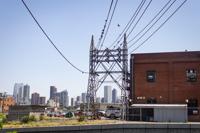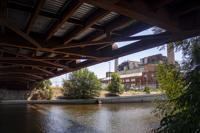Time ticking for Denver to save 122-year-old steam plant
After years of talks and paused demolition plans, movement to convert a historic plant famous for powering downtown Denver’s early days into something new is picking up steam.
More specifically, Xcel Energy thinks it’s time for the city to make a choice.
Last week, the energy company sent a letter to Mayor Mike Johnston giving the city first rights to buy the 122-year-old Zuni steam power plant along the South Platte River. Local community organizations and historic preservationists have spent years working with Xcel and Denver officials to consider the decommissioned building for adaptive reuse.
Xcel paused its plans to demolish the plant to give the city under former Mayor Mike Hancock’s administration time to pave a way toward converting the building into a community hub or food hall. When Hancock left office, the energy company waited for Johnston to settle into his term, said Grace Ramírez, Xcel community and local government affairs manager.
But after a year in office, it’s unclear where the new mayor stands.
The community will soon find out — Xcel gave the city 60 days to respond.
“It is starting to deteriorate to a certain extent,” Ramírez said. “And frankly, we just need to move forward.”
If the city decides it’s interested, Xcel will send an appraisal of the property and Denver will have 30 more days to decide after receiving it. If not, Xcel will list the plant on the market for a 30-day period.
And if that doesn’t lure a buyer, Xcel will tear the plant down.
When asked by The Denver Gazette, the Mayor’s office didn’t provide any details on what the city might want to do with the plant.
“The City is still evaluating the site, and no decisions have been made at this point,” Jordan Fuja, the mayor’s press secretary, said in an statement.
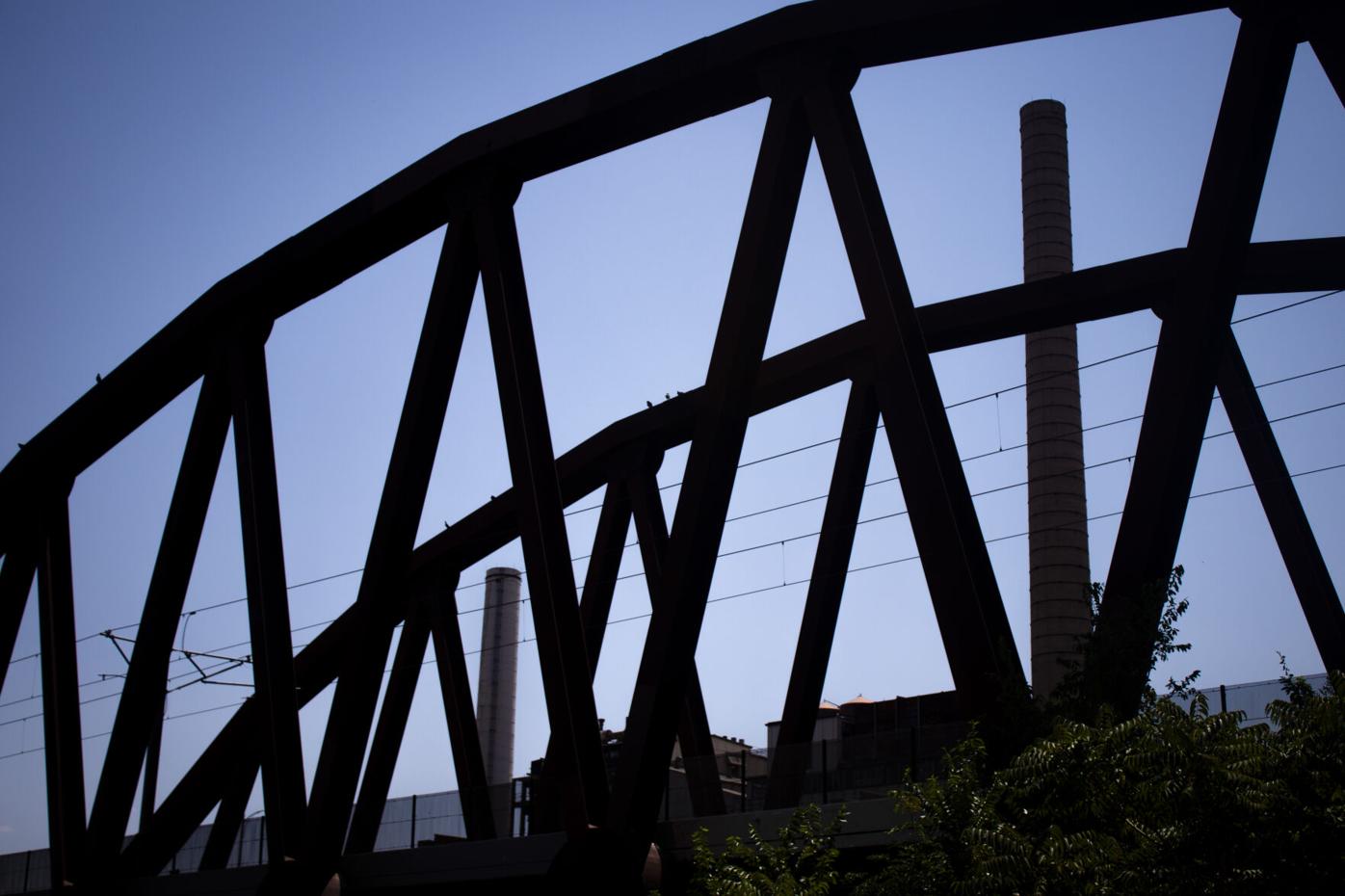
Smokestacks from the Zuni steam plant stand behind a bridge crossing the South Platte River on Aug. 2, 2024.
Bernadette Berdychowski / Denver Gazette

Smokestacks from the Zuni steam plant stand behind a bridge crossing the South Platte River on Aug. 2, 2024.
A symbol of the river’s industrial past
The Zuni steam plant was built in 1901 in one of Denver’s oldest neighborhoods now known as La Alma Lincoln Park, home to a large blue-collar and Latino population and the epicenter of Denver’s Chicano movement.
Charles F. LaCombe built the power plant to compete against Denver Gas and Electric at a time electricity was in its early stages. But LaCombe was quickly forced to sell the plant to Xcel’s predecessor in 1902.
Steam plants became a popular form of heating buildings in Denver because it was safer and cheaper than keeping boilers in every structure.

Power lines hang over the South Platte River from Denver's Zuni steam plant on Aug. 2, 2024.
Bernadette Berdychowski / Denver Gazette

Power lines hang over the South Platte River from Denver’s Zuni steam plant on Aug. 2, 2024.
As Denver grew and demand for electricity surged, the plant underwent several expansions in the 1910s and 1940s. Zuni was one of the city’s three primary steam plants responsible for providing energy to downtown and heating Denver’s most famous buildings such as the State Capitol, the Colorado Convention Center, the U.S. Mint, and the Denver Center for the Performing Arts.
After nearly 115 years in service, the Zuni plant stopped operations in 2015.
Denver’s 143-year-old city steam system faces challenges, notably from electrification
For more than a century, its smokestacks could be seen across La Alma Lincoln Park and Sun Valley.
It’s become a symbol of the South Platte River’s industrial history in an area increasingly becoming more residential. Sun Valley is full of cranes and new or under-construction housing developments just across the bridge from the steam plant.
The city’s most recent river corridor study released in 2013 found the industrial area was ripe for mixed-use development, which could utilize the river as a neighborhood amenity.
Xcel originally planned to demolish the former plant to build an electric substation, but residents rallied to save the building and wanted to convert it into another use for the neighborhood such as an incubator for small businesses or a community hub.
The energy company’s officials listened and paused its demolition plans and any work that could impact the building structure. Xcel also vowed to not build a substation on the site.
Historic preservation eligible
The steam plant is eligible to be considered for landmark status, which could stop a demolition if approved by the city, said Ryan Hull, communications director for Denver Community Planning and Development, in a statement.
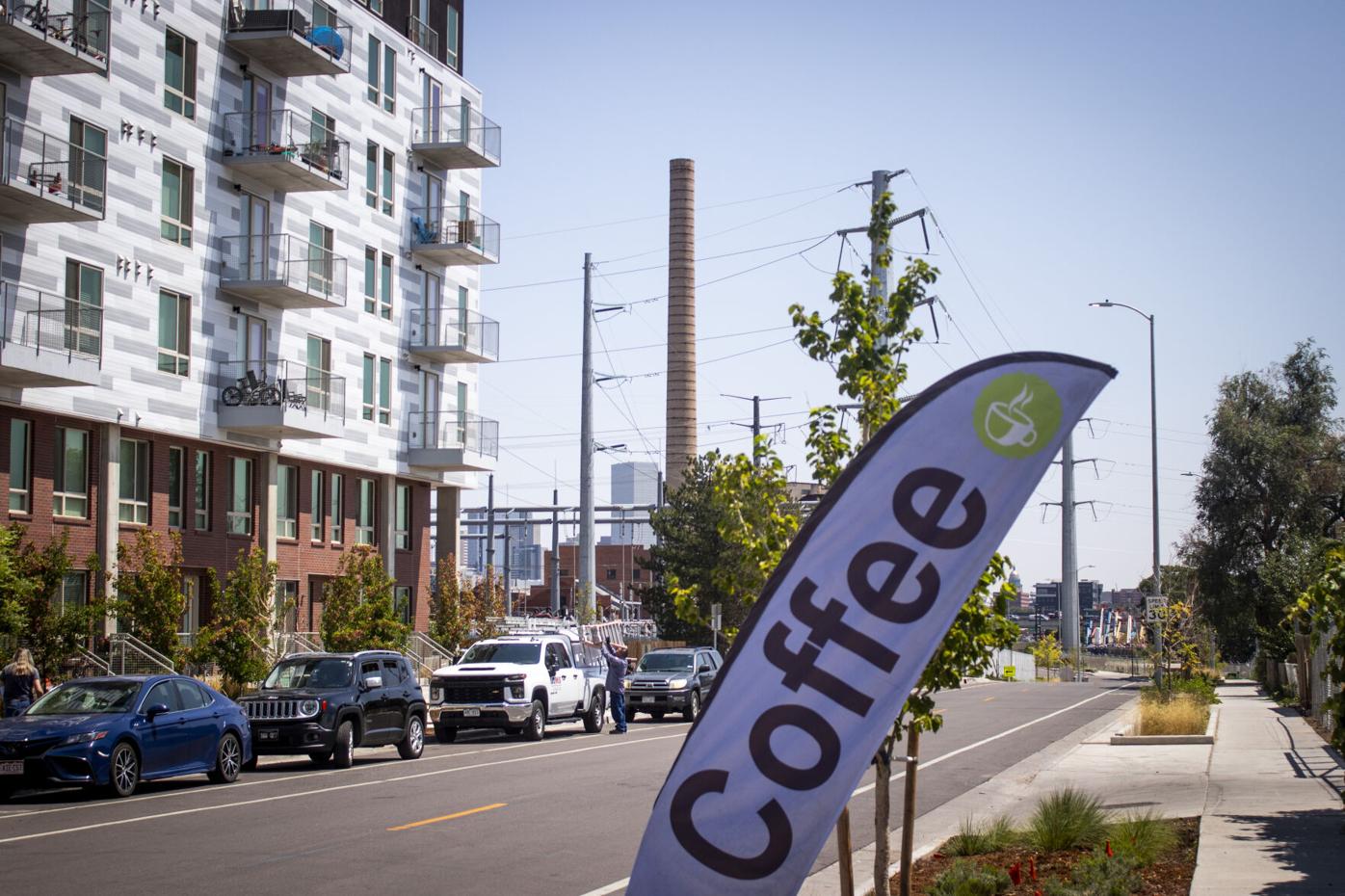
The Zuni steam plant seen from Sun Valley, a Denver neighborhood experiencing a surge of redevelopment, on Aug. 2, 2024.
Bernadette Berdychowski / Denver Gazette

The Zuni steam plant seen from Sun Valley, a Denver neighborhood experiencing a surge of redevelopment, on Aug. 2, 2024.
The area around the plant has been slower to gentrify than places like River North (RiNo) and Sloan’s Lake, but it’s still a major community concern, said David Griggs, a board member of the La Alma Lincoln Park Neighborhood Association.
Keeping the plant is one way to commemorate the area’s blue-collar history and provide a space for the community to use, Griggs said.
“It’s got great bones. It’s a huge, vaulted space,” he said. “It has amazing possibilities.”
Power plants like this have been converted before.
The Fort Collins Municipal Power Plant is now a campus building for Colorado State University. Even closer, where the South Platte River meets Cherry Creek, the 1901 Denver Tramway Power Company Building was converted in 2000 into REI Co-Op’s Denver flagship store.
Across the country, local historical preservationists are looking at power plants in Toledo, Ohio; Beloit, Wisc.; Savannah, Ga. and Austin, Texas as inspiration.
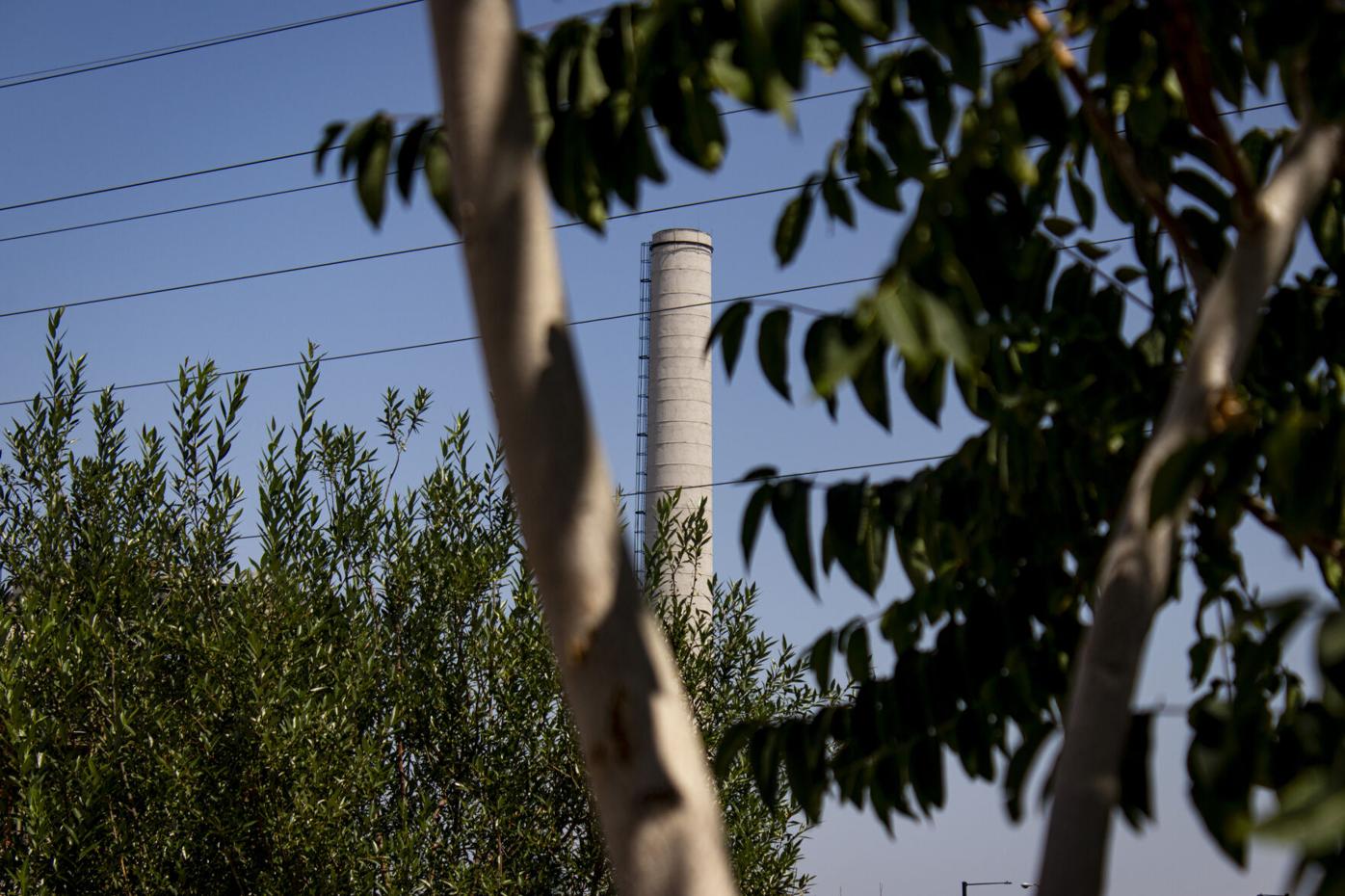
A smokestack of the Zuni steam plant seen from the Sun Valley neighborhood on Aug. 2, 2024.
Bernadette Berdychowski / Denver Gazette

A smokestack of the Zuni steam plant seen from the Sun Valley neighborhood on Aug. 2, 2024.
Grigss hopes the city takes Xcel’s offer to buy the steam plant.
“That would be the best result and have the most opportunity for that property to become an adaptive reuse facility that serves the community,” Griggs said.
If it goes to market, he added, it’ll be a “long shot” to find a private developer who’ll give the community what it wants.
The city owning the plant could allow more time to find the right private developer willing to convert the building.
“This is a really wonderful site and it’s getting better and better as more attention is placed on the Platte River,” Griggs said. “It’s a great opportunity to do something that is embraced by the neighborhood, which services the neighborhood and which becomes a neighborhood destination.”
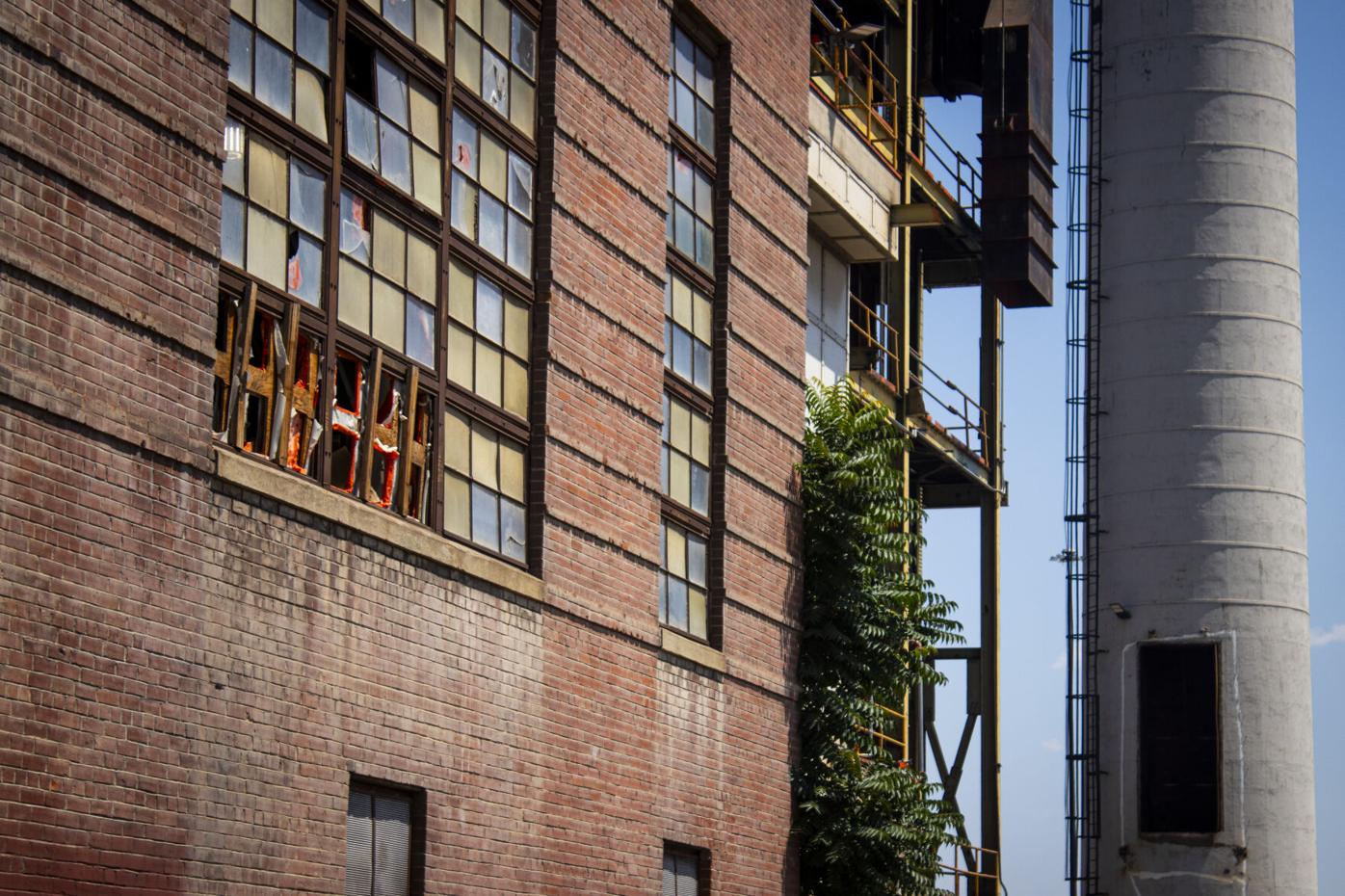
Broken windows can be seen at the 122-year-old Zuni steam plant on Aug. 2, 2024.
Bernadette Berdychowski / Denver Gazette

Broken windows can be seen at the 122-year-old Zuni steam plant on Aug. 2, 2024.
Crunch time
Xcel is nearing the end of its remediation, a cleanup of the site, which pushed the company to take the next step of sending the city the letter.
The building is also old and extreme weather has worn it down, Xcel’s Ramirez said.
Denver's historic Esquire Theatre to close and be redeveloped
The steam plant has some obstacles in the way of converting from its industrial use: heavy machinery inside supports the walls, the site needs more environmental cleanup for general use and it has a transmission line underground that either would limit development or force the owner to move it to maximize the site.
And Xcel has a $22 million budget for its decommissioning project and isn’t willing to incur more costs for the major upgrades needed for adaptive reuse, Ramirez said.
It is after all a utility company, not a developer.
If Xcel does tear down the plant, Ramirez said it still won’t build a substation but would consider new infrastructure toward transitioning Denver to clean energy.
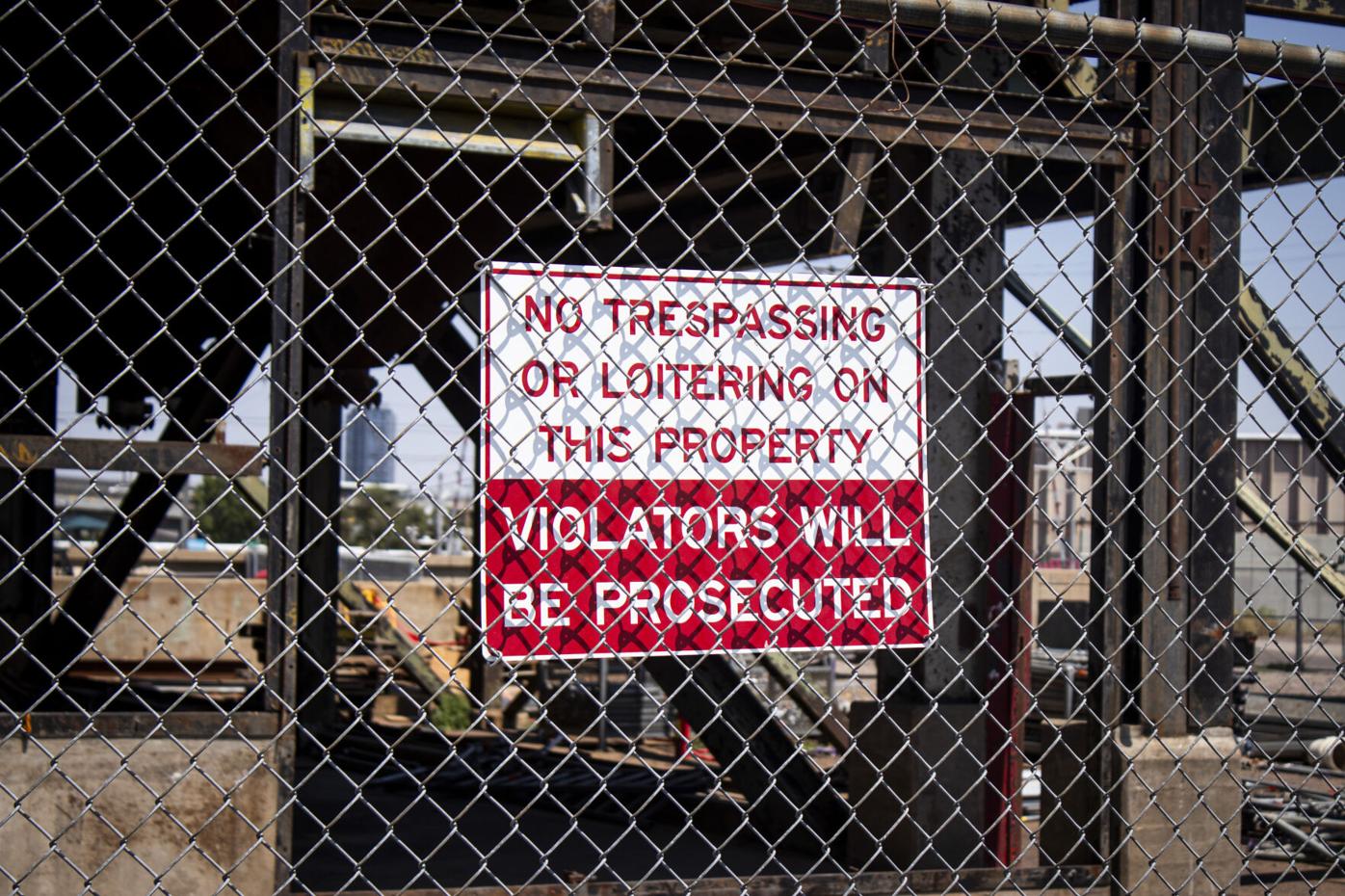
A sign warning against trespassing at the Zuni steam plant on Aug. 2, 2024. The site was decommissioned in 2015 and is in the final phases of remediation work to cleanup the former utility site.
Bernadette Berdychowski / Denver Gazette

A sign warning against trespassing at the Zuni steam plant on Aug. 2, 2024. The site was decommissioned in 2015 and is in the final phases of remediation work to cleanup the former utility site.
The building is considered one of the state’s “most endangered” historic sites, according to nonprofit Colorado Preservation, Inc.
“There needs to be a pause and a moment in time where we are able to have meaningful conversations about the future of the building and it’s not done in a rushed way,” said Historic Denver CEO John Deffenbaugh.
As Sun Valley is undergoing a surge of demolitions and redevelopment, he said it’s become more important to leave some things in place.
“It’s been a staple of that area for a very, very long time,” Deffenbaugh said.
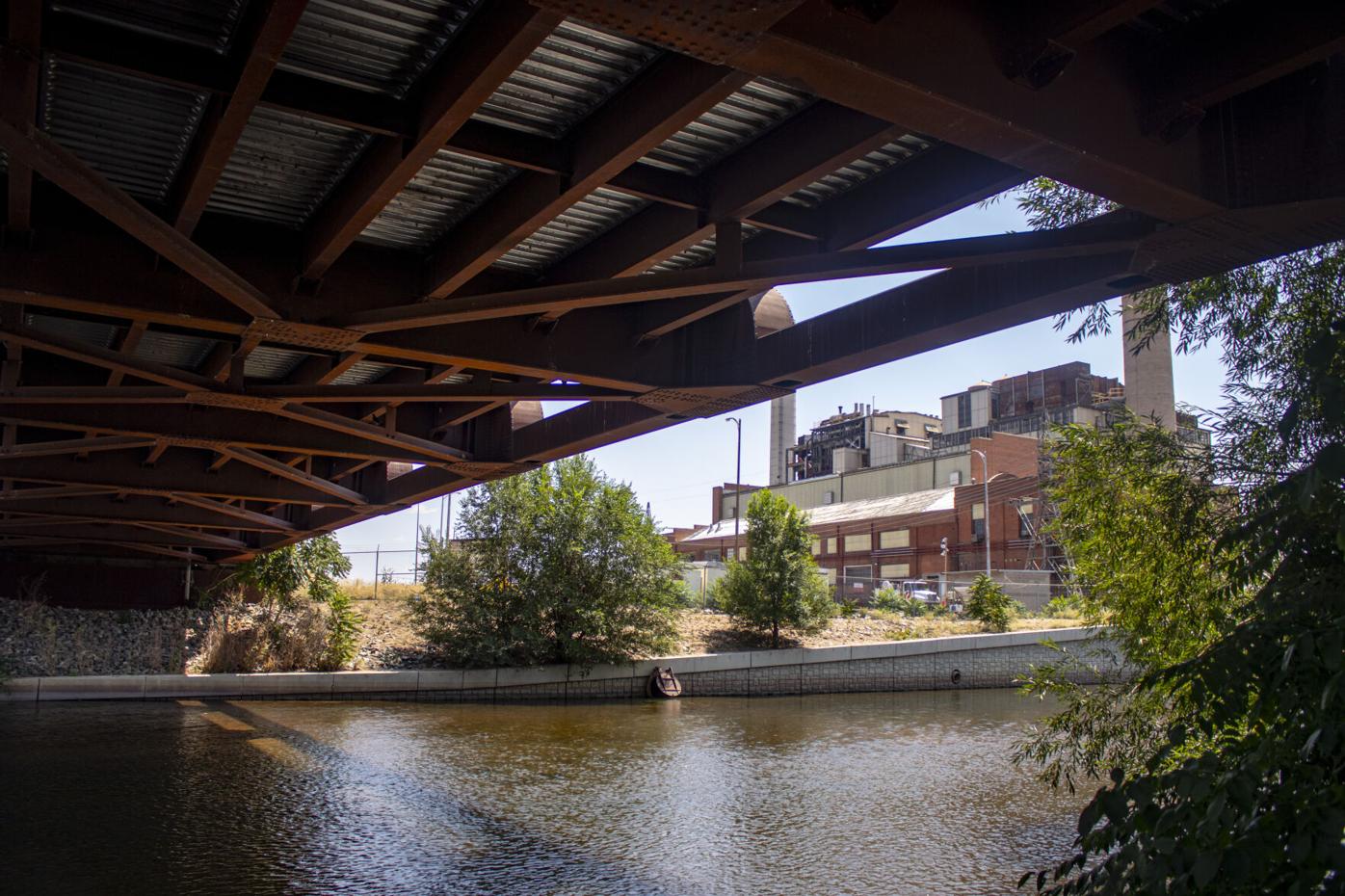
City officials say many of Denver's almost 650 bridges need repair, with close to 15% of them deemed "structurally deficient." While the Department of Transportation and Infrastructure closely monitors bridge health, engineers say more funding will be needed to keep up aging structures.
Bernadette Berdychowski / Denver Gazette

City officials say many of Denver’s almost 650 bridges need repair, with close to 15% of them deemed “structurally deficient.” While the Department of Transportation and Infrastructure closely monitors bridge health, engineers say more funding will be needed to keep up aging structures.
Discussions about the plant’s future have been going on for years, but it’s still unclear what the building will be converted to. It’ll be difficult to make concrete plans until the city makes a decision, he said.
“That’s what’s really needed to trigger to make these conversations more practical,” Deffenbaugh said.
While the previous mayoral administration worked toward preserving the building, the historic preservationist said he hopes Johnston will pick up where Hancock left off and sit for a meeting with community organizations and Xcel — though he wished it happened before the clock started ticking.
As the steam plant played a key part in making Denver a major city, Deffenbaugh said, the city has a duty to help save it.
“Now that it’s no longer needed for power-generating uses,” he said, “Denver needs to respect that and give back to the building, to recognize its contribution to our city’s growth and to support its existence into the 21st century.”







